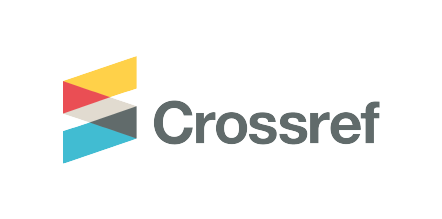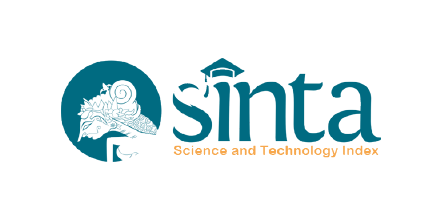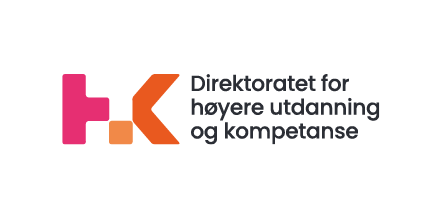Validation of Social Skills Measurement Tools for Special Needs Student
DOI:
https://doi.org/10.21776/ub.ijds.2019.006.01.16Keywords:
Adaptation, primary school, social skills special need studentsAbstract
The adaptation process for measurement of special needs student's social skills in inclusive primary schools was reported in this study. The Social Skills Improvement System was tested on 108 students aged 6-12 years. Social skills measurement include seven dimensions, that are empathy, cooperation, assertiveness, communication, self-control, participation, and responsibility. The adaptation process includes translation, back-translation, and expert judgment. Legibility tests then were conducted on 10 students with special needs. Reliability test shows that the measurement has an Alpha value of 0.833. Confirmatory Factor Analysis is done to see the loading factor of each item in the measuring instrument for students with special needs in inclusive primary schools. It was found that 24 items (three items with a loading factor below the good value is preserved) in the instrument had a factor loading ranging between 0.04-0.70 (RMSEA = 0.063, IFI = 0.89 and GFI = 0.80). Based on these results, it can be concluded that SSIS measuring instruments that have been adapted into Indonesian is valid and reliable to measure the social skill of special need primary students. The implications of the study findings are discussed for future research. The adaptation process for measurement of special needs student's social skills in inclusive primary schools was reported in this study. The Social Skills Improvement System was tested on 108 students aged 6-12 years. Social skills measurement include seven dimensions, that are empathy, cooperation, assertiveness, communication, self-control, participation, and responsibility. The adaptation process includes translation, back-translation, and expert judgment. Legibility tests then were conducted on 10 students with special needs. Reliability test shows that the measurement has an Alpha value of 0.833. Confirmatory Factor Analysis is done to see the loading factor of each item in the measuring instrument for students with special needs in inclusive primary schools. It was found that 24 items (three items with a loading factor below the good value is preserved) in the instrument had a factor loading ranging between 0.04-0.70 (RMSEA = 0.063, IFI = 0.89 and GFI = 0.80). Based on these results, it can be concluded that SSIS measuring instruments that have been adapted into Indonesian is valid and reliable to measure the social skill of special need primary students. The implications of the study findings are discussed for future research.
References
Cohen, R. J., & Swerdlik, M. E. (2005), Psychological testing and measurement:An introduction to tests and measurement, McGraw-Hill, New York.
Forza, C., & Filippini, R. (1998), TQM impact on quality conformance and customer satisfaction: A causal model, International Journal of Production Economics, Vol. 55, Page 1-20.
Gravetter, F. J., & Forzano, L. B. (2012), Research methods for the behavioral science (4th ed.), Wadsworth Cengange Learning, Canada.
Gresham, F.M., & Elliot, S.N. (2008), Social skills improvement system-rating scales, MN: Pearson Assessments, Minneapolis.
Hair, J. F., Black. W. C., Babin. B. J., & Anderson. R. E. (2010), Multivariate Data Analysis (7th ed.), Pearson Prentice Hall, New Jersey.
Hallahan, D. P., & Kauffman, J. M. (2006), Exceptional children: Introduction to special education (10th ed.), Allyn & Bacon, Boston.
Heiman, T.(2000), Quality and quantity of friendship: Students' and teachers' perceptions, School Psychology International, Vol. 21 No. 3, Page 265-280.
Henninger, W.R.,& Gupta, S.S. (2014), Excerpted from first steps to preschool inclusion: How to jumpstart your program wide plan, Brookes Publishing, USA.
Hildayani, R., Hadis, F.A., dan Tambunan, S.M. (2002). Peran kualitas attachment, usia, dan gender terhadap kualitas persahabatan. Tesis tidak dipublikasikan. Fakultas Psikologi, Universitas Indonesia, Depok.
Hu, L., & Bentler, P. M. (1999), Cutoff criteria for fit indexes in covariance structure analysis: Conventional criteria versus new alternatives, Structural Equation Modeling, Vol. 6, Page 1-55.
Kerlinger, F.N., & Lee, H.B. (2005), Foundations of behavioral research (4th Ed.), Harcourt College Publishers, Orlando.
Koster, M., Pijl, S. J., Nakken, H., & Van Houten, E. (2010), Social participation of students with special needs in regular primary education in Netherlands, International Journal of Disability, Development and Education, Vol. 57 No. 1, Page 59-75.
Lee, S. W. (2005), Encyclopedia of school psychology, SAGE Publications, Inc., London.
Downloads
Published
How to Cite
Issue
Section
License
Copyright (c) 2019 Farida Kurniawati

This work is licensed under a Creative Commons Attribution-NonCommercial 4.0 International License.















